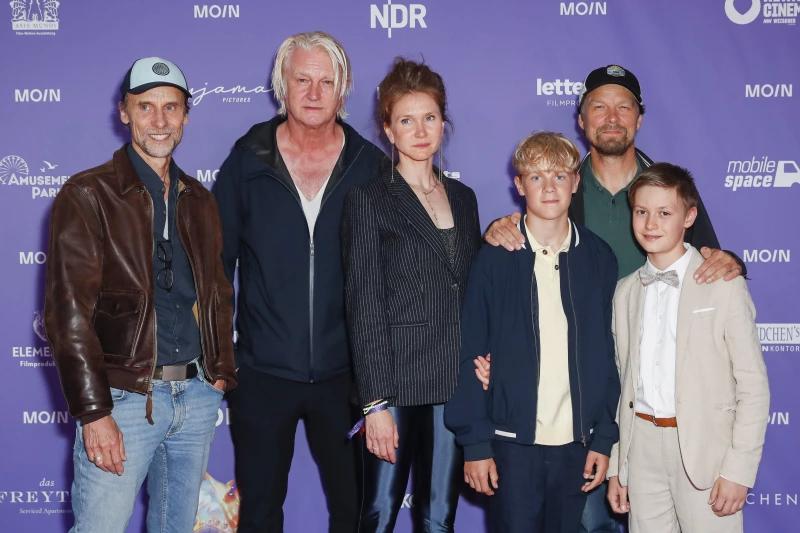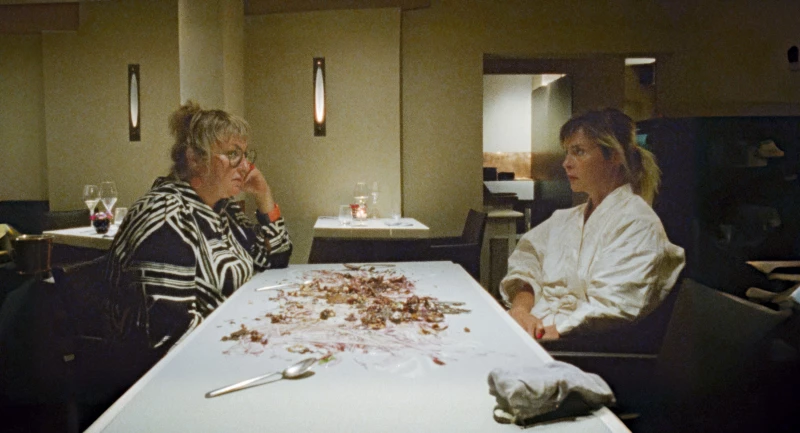
"Hark Bohm's childhood memories are still relevant today"
13.05.2025 | Fatih Akin's "Amrum" in Cannes
-2025-bombero-international-gmbh-&-co.-kg_rialto-film-gmbh_warner-bros.-entertainment-gmbh_mathias-bothor.jpg?fit=max&w=1280&h=1773&q=85&fm=webp)
Hamburg filmmaker Fatih Akin is something of a permanent guest at the Cannes Film Festival. He has already sat on the jury and in 2017, "Into the Fate" competed for the Palme d'Or. Now "Amrum", about Hark Bohm's childhood memories, will celebrate its world premiere at the festival. In the interview, Fatih Akin explains why the subject matter is so topical, why he thinks Amrum is a healthy island and that he didn't actually want to make the film.
Films about hunger have something existential about them.
Interview: Britta Schmeis
- What does it mean to you that ‘Amrum’ is now celebrating its world premiere in Cannes?
Fathi Akin: I didn't expect that. It's a great gift. You never know how a film like this will be received. In 30 years of filmmaking, I've never learnt to judge that properly.
- And how did ‘Amrum’ get to Cannes?
Fathi Akin: After my wife Monique saw the film when it was almost finished, she said that I absolutely had to show it to the Cannes Selection Committee. She thought they would like it. And she was probably right.
Amrum Trailer

- What did the committee like about it?
Fathi Akin: Ich glaube, die Geschichte, die hinter dem Film steckt. Ursprünglich sollte Hark Bohm ihn ja machen. Das konnte er dann aus gesundheitlichen Gründen nicht. Hark ist mein Filmlehrer, mein Lehrer fürs Leben und mein Freund. Ich glaube, das rührt an. Sie hat aber auch der Stoff interessiert. Der Film spielt in Deutschland im Jahre Null, unmittelbar nach dem Krieg und fragt, wie weit der Nationalsozialismus in eine Familie reicht, wie weit eine Familie geht mit ihrer Ideologie. Was ihnen nun kinematografisch gefallen hat, das musst du sie selber fragen.
- How did the film come about in the first place?
Fatih Akin: As I said, Hark actually wanted to shoot it. I encouraged him to do it after he told me his childhood story. We worked on the script together. Then he backed out and asked me if I didn't want to make the film. I had my doubts at first, but because it's Hark and because he's my friend and because he lives round the corner, I did it after all. Hark had given a first version of the screenplay to a publisher friend to read and he said that it had to be turned into a novel. It was then published when we started filming. So the film project was just there. But I hadn't read the novel before or during filming. That would have confused me too much. I wanted my own interpretation of the story.

- The film, like the novel, tells the story of 12-year-old Nanning, Hark Bohm's alter ego, who experiences the last days of the Second World War on Amrum, torn between his Nazi parents and Nazi opponents. He also has to feed his family and goes seal hunting, among other things. What is your interpretation of the material?
Fatih Akin: There are many issues. First of all, you can't choose your parents. And parents can't choose their children. What does that mean if you're somewhere politically and your parents are somewhere else? That's something you see everywhere these days, that it's no longer possible to talk about politics within families because the positions are so contradictory. So how do you deal with your inner enemy, which is your own mother or father? I was very interested in that.
And then I was interested in the question of consumer society today and the hunger that prevailed back then. We no longer know hunger and renunciation. But you only have to look around the world to see that there is still a lot of hunger. Hunger is a companion of mankind, a decisive factor in evolution. Hunger no longer exists in the western world, but perhaps it will return, perhaps after a blackout, war or if another virus emerges. Films about hunger have something existential about them.
linda-rosa-saal_web.jpg?fit=max&w=1000&h=4128&q=85&fm=webp)
- The film is set on Amrum. You shot most of the film there. Did you know the island?
I didn't know Amrum. And now the island has really enriched my life because it is beautiful and very wild. And somehow it's a very healthy island. I've never felt as good as I did during the six weeks we were there. I was outside all day. I was always incredibly tired in the evening. We were very lucky with the weather. We walked barefoot a lot, on the beach and in the dunes. It's good for your feet. Also, unlike Sylt, Amrum lacks a land connection. That makes it somehow even more remote and unspoilt.
- Did you also film in Hamburg?
Yes, the studio recordings. That's always a home game.
- Diane Kruger, who starred in ‘Out of the blue’, is back in the film. She plays the self-confident, anti-fascist farmer's wife Tessa. How did the casting come about?
She has chosen the role. We each trust each other's instincts. And her instinct told her that Tessa was her role.
- The film also has a prominent cast, including Laura Tonke, Lisa Hagmeister and Matthias Schweighöfer, as well as your fellow North German directors Detlev Buck, Jan Schütte and Lars Jessen. He's never acted before, has he?
I think that was his first role. And, well, I thought it would be good if there were other Directors on set who could stand in for me if I got a cold or something on the North Sea. So those were very pragmatic reasons. Of course, I also appreciate them as actors.
- What do you wish for the film - in Cannes and then also for the cinema release in October?
Many viewers, of course, and above all a broad audience - including children, at least from the age of twelve, because the film has so many stories to tell. We learn through storytelling. We forget so quickly and always think that we are all de-Nazified. But that's not the case at all. I believe that on the one hand the film entertains - and it should - but on the other hand it also reflects on who we are and where we were not so long ago. If you forget that, you're already on the cusp of it happening again. Nothing is told to the end.
more articles






-2025-bombero-international-gmbh-&-co.-kg_rialto-film-gmbh_warner-bros.-entertainment-gmbh_mathias-bothor.jpg?fit=max&w=800&h=1773&q=90&fm=webp)